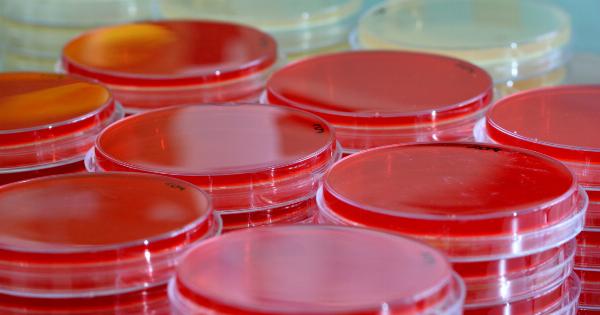Pregnancy is a critical phase of life for any woman. During pregnancy, the body undergoes several changes that support the growth and development of the baby. However, these changes also make the mother vulnerable to various health problems.
Medicines are an essential part of healthcare, but not all medicines are safe during pregnancy. It is vital to take precautionary measures and avoid certain medicines to prevent any harm to the baby.
Why are some medicines unsafe during pregnancy?
The safety of a medicine depends on various factors such as its dosage, frequency, and duration of use. Moreover, the impact of a medicine also varies with the stage of pregnancy.
For example, medicines that are safe in the first trimester may not be safe in the later stages of pregnancy. The impact of a medicine also depends on its chemical composition and properties. Some medicines have a teratogenic effect, which means they can cause structural or functional abnormalities in the baby.
Medicines to avoid during pregnancy
Several medicines are unsafe during pregnancy due to their potential to cause harm to the developing fetus. It is essential to avoid these medicines or take them only under the supervision and guidance of a healthcare professional.
1. Nonsteroidal Anti-inflammatory Drugs (NSAIDs)
NSAIDs are a group of medicines used to relieve pain, inflammation, and fever. Examples of common NSAIDs include ibuprofen, aspirin, and naproxen. NSAIDs are a strict no-no during pregnancy, especially during the later stages.
These medicines can cause several complications such as premature closure of the ductus arteriosus, bleeding disorders, and delayed labor.
2. Accutane
Accutane is a prescription medicine used to treat severe acne. Accutane is a potent teratogen and can cause serious birth defects such as heart defects, cleft palate, and brain damage.
Accutane can also cause premature birth, low birth weight, and fetal death. Women who are pregnant or planning to become pregnant should avoid Accutane at all costs.
3. Thalidomide
Thalidomide is a medicine used in the treatment of multiple myeloma, leprosy, and some types of cancer. Thalidomide is a potent teratogen and can cause severe birth defects such as phocomelia, which is a condition where the limbs are not fully formed.
Thalidomide can also cause stillbirth and miscarriage. Women who are pregnant or planning to become pregnant should avoid Thalidomide.
4. ACE inhibitors
ACE inhibitors are a group of medicines used to treat hypertension, heart failure, and kidney disease. Examples of common ACE inhibitors include enalapril, lisinopril, and benazepril.
ACE inhibitors are not safe during pregnancy as they can cause severe complications such as renal failure, low amniotic fluid levels, and fetal death. Women who are pregnant or planning to become pregnant should avoid ACE inhibitors.
5. Warfarin
Warfarin is an anticoagulant medicine used to prevent blood clots. Warfarin is not safe during pregnancy as it can cause several complications such as bleeding in the brain and placenta. Warfarin can also cause miscarriage, stillbirth, and neonatal death.
Women who are pregnant or planning to become pregnant should avoid Warfarin.
6. Methotrexate
Methotrexate is a medicine used to treat cancer, rheumatoid arthritis, and psoriasis. Methotrexate is a potent teratogen and can cause severe birth defects such as neural tube defects, heart defects, and craniofacial abnormalities.
Methotrexate can also cause low birth weight and fetal death. Women who are pregnant or planning to become pregnant should avoid Methotrexate.
7. Paroxetine
Paroxetine is an antidepressant medicine used to treat depression, anxiety, and obsessive-compulsive disorder.
Paroxetine is not safe during pregnancy as it can cause several complications such as heart defects, cerebral palsy, and neonatal behavioral syndrome. Women who are pregnant or planning to become pregnant should avoid Paroxetine.
8. Leflunomide
Leflunomide is a medicine used to treat rheumatoid arthritis. Leflunomide is a potent teratogen and can cause severe birth defects such as neural tube defects, heart defects, and craniofacial abnormalities.
Leflunomide can also cause low birth weight, fetal death, and spontaneous abortion. Women who are pregnant or planning to become pregnant should avoid Leflunomide.
9. Tetracycline
Tetracycline is an antibiotic medicine used to treat bacterial infections such as acne, chlamydia, and pneumonia.
Tetracycline is not safe during pregnancy as it can cause several complications such as fetal skeletal abnormalities, discoloration of teeth, and delayed development of bones and skull. Women who are pregnant or planning to become pregnant should avoid Tetracycline.
10. Valproic acid
Valproic acid is a medicine used to treat epilepsy, bipolar disorder, and migraine headaches.
Valproic acid is not safe during pregnancy as it can cause several complications such as neural tube defects, developmental delays, and congenital heart defects. Women who are pregnant or planning to become pregnant should avoid Valproic acid.
Conclusion
Pregnancy is a remarkable stage of life that requires special care and attention. It is essential to avoid medicines that can cause harm to the developing fetus.
The safety of a medicine depends on various factors such as its chemical composition, dosage, and duration. Women who are pregnant or planning to become pregnant should consult their healthcare provider regarding the safety of medicines before taking them.






























